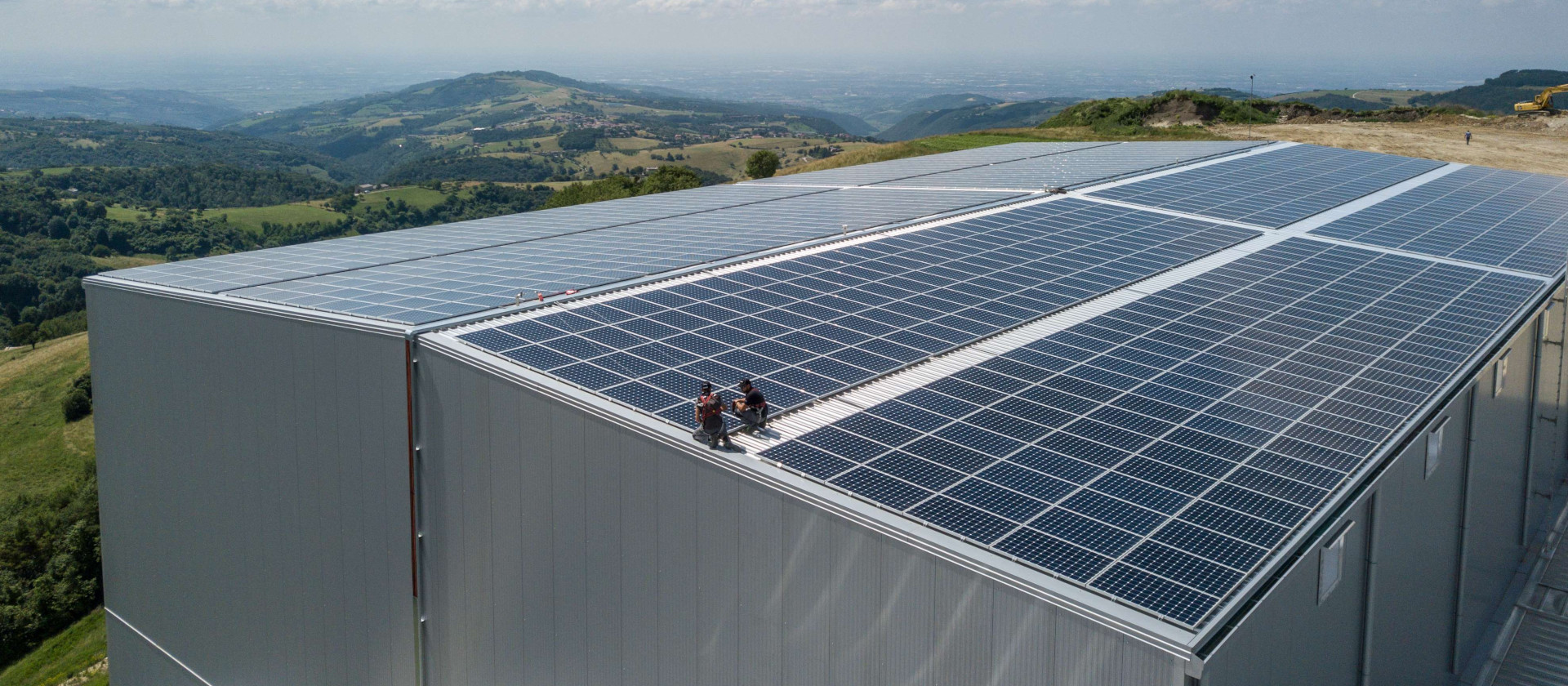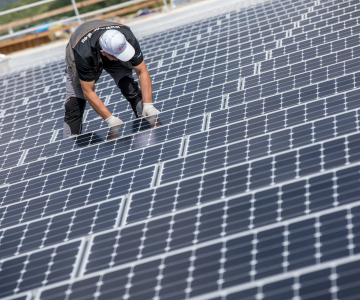
Photovoltaic

PHOTOVOLTAIC SYSTEMS IN VERONA
The types of modules are different but in broad terms the most reliable and marketed category of silicon-based products can be divided into:
- single-crystalline modules: in which each cell is made from a silicon tomino whose crystalline structure is homogeneous (single crystal). The peculiarity of these products is the high efficiency which, however, is obtained only in optimal logistical conditions; since it requires direct sunlight with south-facing positioning and an optimal inclination of around 30°;
- polycrystalline modules: in which the silicon cells are not structurally homogeneous but organized into locally ordered grains (polycrystalline). These panels approach the yields of single crystals and have similar characteristics and reactions;
- amorphous modules: also called "thin film" in which the siliceous atoms are chemically deposited in an amorphous form, i.e. structurally disorganized, on the support surface.
This technology uses very small quantities of silicon but compared to the previous ones it has much lower efficiency values (therefore requiring a lot of surface area). The peculiar characteristic of this type of module is the fact that the photovoltaic effect also arises from indirect and therefore diffused light and does not necessarily require optimal positioning. Other technologies developed, not as much as silicon today, are: Cadmium Telluride (CdTe), Gallium Arsenide (GaAs), Copper Indium Diselenide (CIS) and Indium Copper Gallium Diselenide (CIGS).
-
SAFE INVESTMENT
-
PROFITABLE INVESTMENT
-
ETHICAL INVESTMENT
What we offer
Objectivity
Sinergi's aim is to work alongside the Company to enable it to seize all the opportunities offered by the market and the regulations in force. We are partners of the largest producers and researchers of different technologies, our contribution to each project is objective and in search of the best conceivable result.
The right system
Sinergi becomes a reliable partner right from the first inspection: the initial survey immediately suggests the most suitable solution based on the available surface area and its characteristics. Our experience combined with a mix of synergistic skills in the field of photovoltaic, electrical and construction engineering mean that each project becomes a "tailor-made suit" for us.
Transparency
Transparency is a further good reason for reassurance: Sinergi presents a project accompanied by a detailed economic-financial analysis full of tables and numbers, to guarantee the final result. The certainty of the harvest, to protect the investment.
The presence
And finally the presence, Sinergi supports the Company to give concreteness to the project, up to the harvesting of the first fruits and beyond, continuously offering all the necessary assistance and maintenance. Care and attention for luxuriant development.
Turnkey Projects
Sinergi studies the most advanced technologies applicable to each individual case to offer the best possible solution to each customer's needs. The turnkey concept is based on a highly professional service with the aim of differentiating itself in the market for the high quality of the solution.Sinergi will therefore be the only point of reference for all the following activities:
- inspection and collection of technical-economic data
- analysis of average annual consumption and sizing of the system - preliminary plant design and estimated investment
- electrical, structural and plant design
- preparation of paperwork and documentation for the authorization and start-up of works
- assistance and support in the financing request phase - supply of photovoltaic modules
- supply of materials and devices to complete the system
- bureaucratic assistance and administrative management with the relevant bodies
- project management and works supervision installation and testing assistance and maintenance


